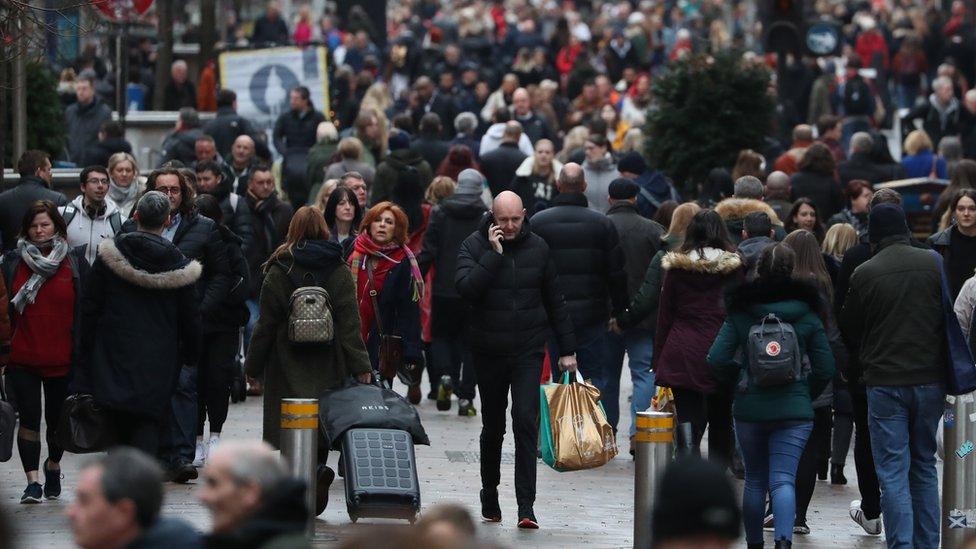Scottish life expectancy falls for third year
- Published

Glasgow has the lowest life expectancy in Scotland
Life expectancy in Scotland has decreased for the third year in a row, according to official figures.
A National Records of Scotland (NRS) report shows it has dropped by three weeks for men and almost six weeks for women.
The average life expectancy is now 76.5 years for men and 80.7 years for women. The provisional figures are an average for the three-year period 2020-2022.
Life expectancy is lowest for both men and women in Glasgow.

For men in Glasgow, the figure is 72.9 years and for women it is 78.2 years. Both have shown slight improvements of 0.3 years on the previous period of 2019-2021.
The figures also show life expectancy was highest for women in East Renfrewshire (84.0 years) and in East Dunbartonshire for men (79.9).
The NRS says life expectancy improved between the early 1980s and early 2010s. It stalled around 2012-2014 and began decreasing in 2018-2020.
There has been a decrease in male life expectancy in 25 council areas since 2012-2014 and in 22 council areas for women.
Age Scotland's head of policy and communications, Adam Stachura, said the figures were a "cause for concern".
"The Covid-19 pandemic had a significant impact on life expectancy, with older people most at risk, but these figures were already stalling in the years leading up to the pandemic," he said.
"Factors linked to poverty may contribute to a further reduction in life expectancy in the future, such as the number of people struggling to heat their homes to a comfortable level and the increasing cost of essentials such as food."
He added: "Given the devastating link between income levels and overall life expectancy, and the difficulty many people experience when accessing healthcare and social care, it's becoming increasingly difficult to see how this trend can be reversed without first addressing these underlying issues."
'A sorry state of affairs'
Speaking on the BBC's Good Morning Scotland programme, Dr Gerard McCartney, professor of Wellbeing Economy at the University of Glasgow, said the economic and social after-effects of Covid coupled with the cost-of-living crisis were a "sorry state of affairs for life expectancy".
He also pointed to the longer-term effects of the 2008 economic crash and the austerity policies pursued by the UK government from 2010 onwards.
"If you look at the life expectancy data for the poorest 30 or 40% of areas in Scotland, it has actually been in decline for over a decade now and that relates to the rising income inequalities and wealth inequalities we have seen and the imposition of UK-wide austerity policies," he said.
"The incomes that the poorest parts of the population are reliant upon have become less certain and less valuable. And the public services that we all depend on, but again are particularly important to those in the most difficult circumstances, have all been eroded over time and that has had an understandable and expected impact on life expectancy," he added.
Professor McCartney said future figures could continue the trend for lower life expectancy because of the continued impact of the cost-of-living crisis and the consequences of people missing out on or having health services delayed during the pandemic.